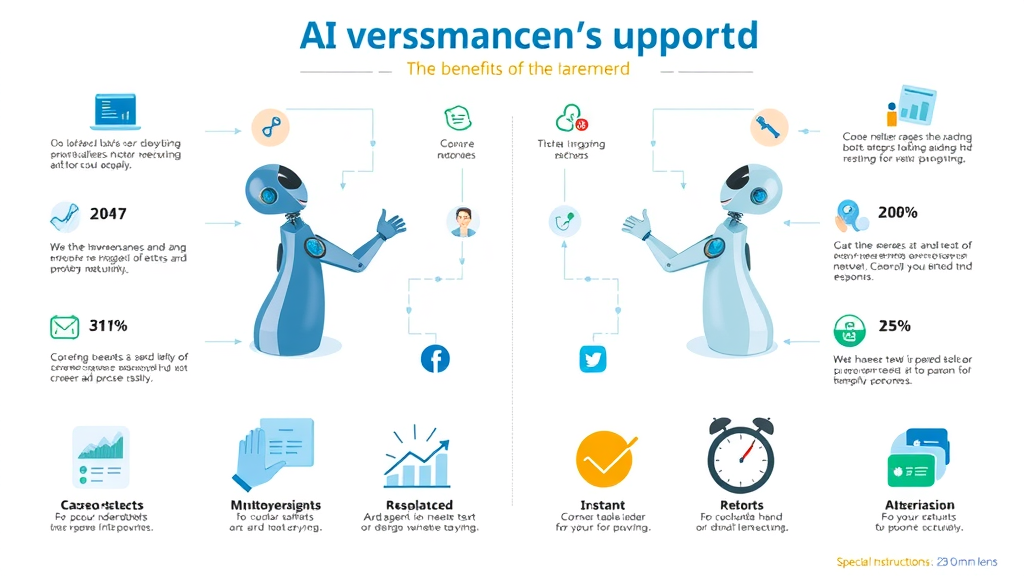Did you know that 73% of consumers now prefer interacting with conversational AI agents over traditional channels? The way we communicate with customers is changing faster than ever—and businesses that seize this revolution are seeing unprecedented boosts in satisfaction, efficiency, and bottom-line results. In this comprehensive guide, you’ll learn how conversational AI agents are transforming customer engagement, discover real industry use cases, and get actionable steps to launch your own AI-powered customer chat. If you’re ready to unlock peak customer experiences and leave your competitors behind, keep reading.
Transforming Customer Service: How Conversational AI Agents Are Reshaping Engagement
Conversational AI agents are redefining customer service by offering instant, accurate, and personalized support around the clock. Powered by advancements in natural language processing and generative AI, these intelligent ai agents engage your customers across chat, voice, and digital channels with human-like empathy and precision. The result? Radically improved customer experience —at scale—without inflating operational costs. Companies integrating conversational AI and virtual agents into their contact centers report faster issue resolution , enhanced loyalty, and a noticeable edge over competitors still stuck in legacy communication modes.
Take the example of a major e-commerce retailer: after implementing conversational AI agents into their customer service operations, they observed a dramatic drop in ticket backlogs and more consistent satisfaction feedback. These AI agents leveraged natural language understanding to resolve inquiries ranging from simple order questions to complex refund processes. They were able to recognize context, escalate appropriately, and provide seamless omnichannel experiences—benefits that traditional support lines could not match. This is not the future; it’s happening now.

Startling Fact: 73% of Consumers Prefer Dealing with Conversational AI Agents Over Traditional Channels
Businesses ignoring conversational AI agents risk falling behind—fast. Today’s digital-first customers expect immediate responses and personalized attention. According to recent studies, 73% of consumers actively seek out brands that deploy conversational AI for customer support, citing their speed, accuracy, and always-available service. This shift in preference is pushing companies across industries to reimagine their contact center AI, engage customers proactively, and embrace the power of agentic AI to stay relevant and competitive.
“Conversational AI agents boost customer satisfaction rates by 30% compared to traditional support channels.” – Gartner
What You’ll Gain by Leveraging Conversational AI Agents in Customer Experience
Adopting conversational AI agents delivers a cascade of advantages to your customer service and engagement suite. First, you’ll notice reduced support costs : AI-powered agents manage routine queries efficiently, freeing human agents to handle complex or high-value tasks. Second, conversational AI enables a superior omnichannel customer experience , reaching users where they are—be it chat, voice, or virtual platforms—with seamless handoffs and unified profiles. Third, scalable automation becomes a reality, with agentic AI and generative AI providing reliable service even during peak volumes.
Beyond seamless automation, conversational AI agents harness advanced natural language processing to personalize every customer interaction. Customers enjoy faster resolutions, while your team benefits from real-time analytics that enable proactive outreach and continuous improvement. All these features, stitched together by a mature AI platform, future-proof your contact center and lay the foundation for outstanding customer experiences.
- Reduced support costs and faster resolution with conversational AI agents
- Superior omnichannel customer experience driven by AI agents
- Scalable automation using conversational AI and agentic AI
- Personalized interactions through natural language processing
- Real-time analytics and proactive support powered by AI platforms
| Feature | Conversational AI Agents | Traditional Agents |
|---|---|---|
| 24/7 Availability | Yes | No |
| Instant Response | Yes | No |
| Consistency | High | Variable |
| Multilingual Support | Yes | Limited |

Conversational AI Agents Explained: Definition, Features, and Core Technologies
At their core, conversational AI agents are advanced software entities that mimic human conversation through text or voice interactions, powered by sophisticated language models and machine learning. Unlike traditional chatbots, these AI agents understand the nuances of natural conversation, remember context across interactions, and adapt dynamically to evolving customer needs. Integrated with robust ai platforms , they support multi-channel touchpoints—from web chat to virtual voice agents—unlocking new possibilities for personalized engagement and automation in every customer service scenario.
Their key features include natural language understanding (NLU), seamless integration with contact center infrastructure, real-time generative AI for dynamic dialog, and expansive omnichannel coverage. These powerful capabilities allow conversational ai agents to not only answer FAQs but also resolve complex customer issues, handle transactions, and escalate to humans with complete conversational context. Rapid improvements in agentic AI and adaptive language models now mean these virtual agents can learn from every interaction, constantly raising the bar for customer experience.
Core Capabilities of Conversational AI Agents
The most impactful conversational ai agents deliver a blend of speed, intelligence, and scalability. Powered by natural language understanding , they interpret varied customer queries with high accuracy, making conversations feel natural and effortless. Seamless integration with legacy and next-gen contact centers ensures your technology stack remains agile and future-ready. With generative AI , these agents produce dynamic, context-aware responses, moving far beyond static rule-based scripts.
- Natural language understanding and processing
- Seamless integration with contact centers
- Generative AI for dynamic responses
- Omnichannel engagement across chat, voice agents, and virtual platforms

Omnichannel engagement means customers can switch seamlessly between chat, voice, and virtual interfaces, with the agent retaining full conversational context regardless of channel. This approach empowers organizations to deliver consistent customer experience—no matter how, when, or where the interaction begins. The scalability of these capabilities ensures contact centers can manage even unpredictable spikes in volume without compromising service quality or employee well-being.
Role of Natural Language Processing and Language Models in Conversational Agents
Natural language processing (NLP) and powerful language models are the engines behind leading conversational AI agents. NLP enables these agents to accurately interpret, analyze, and respond to diverse customer queries in a fluid, context-aware manner. By processing intent, emotion, and language intricacies, NLP-powered agents minimize misunderstandings and provide relevant solutions—fostering authentic customer engagement and boosting trust.
Behind the scenes, continuous improvements in language models and AI training allow agents to learn from every interaction. This means your conversational agent gets smarter over time, better understanding brand tone, product specifics, and customer preferences. As these technologies mature, businesses enjoy not just operational efficiency but also more personalized customer experiences and stronger brand loyalty.
What Are Conversational AI Agents? (People Also Ask)
Conversational AI Agents: Definition, Historical Context, and Evolution in Customer Service
Conversational AI agents are software-based virtual agents designed to simulate human communication using advanced AI and natural language technologies. Historically, early bots were rule-based and limited to simplistic scripted responses. The evolution from these basic chatbots to today’s sophisticated language model-driven agents marks a leap in customer service capability. Modern conversational ai agents now leverage deep learning, NLP, and generative AI to recognize intent, manage multi-turn dialogs, and help businesses scale their customer support with new levels of efficiency and empathy.
Over the last decade, rapid innovation in center ai and the proliferation of cloud-based ai platforms have made these solutions accessible to contact centers of all sizes. As enterprises adopted conversational ai platforms, customer expectations shifted—what was once a novelty is now a necessity. Conversational agents have moved from basic task automation to become strategic pillars of customer engagement, driving higher customer satisfaction and operational cost savings across retail, finance, healthcare, and travel.
What Are the 5 Types of Agent in AI? (People Also Ask)
Types of AI Agents: Conversational, Reactive, Model-Based, Goal-Based, and Utility-Based
In the realm of AI, there are five principal types of agents, each serving unique roles in automating decision-making and problem-solving. The most familiar is the conversational agent , specializing in natural language interaction and customer engagement. Reactive agents act based solely on current input without memory, while model-based agents utilize internal representations to handle more complex situations. Goal-based agents focus on achieving specific objectives by evaluating possible actions, and utility-based agents seek to maximize a defined benefit function to select the optimal solution.
Of these, conversational ai agents are the cornerstone of modern customer service, uniquely combining conversational intelligence with the flexibility to adapt to customer demands in real time. By integrating generative AI, agentic AI, and advanced ai models , these agents support not only proactive customer engagement but also robust automation and workflow management, distinguishing them from their more static AI counterparts.

What Is an Example of a Conversational Agent? (People Also Ask)
Real-World Use Cases of Conversational AI Agents in Contact Centers
Consider the example of a large telecommunications company deploying a conversational AI agent across its web, app, and voice channels. Customers can initiate billing inquiries, activate new services, or troubleshoot devices—all through a unified conversational interface. The AI agent uses generative AI and natural language understanding to interpret requests, retrieve answers from backend databases, and escalate to a human supervisor if needed. The results are measurable: call volumes decrease, resolution speed improves, and both customer satisfaction and Net Promoter Score (NPS) climb sharply.

Another standout use case involves an online retailer whose conversational agents assist with product recommendations, order tracking, and returns processing. These AI-powered chats are personalized thanks to advanced language models and customer data integration, resulting in more relevant answers, fewer abandoned carts, and improved customer loyalty. Whether deployed as chat-based virtual agents, voice agents, or embedded within mobile apps, the impact is clear: conversational AI drives both operational efficiency and superior customer engagement.
Who Has the Best Conversational AI? (People Also Ask)
Industry Leaders and Top Platforms in Conversational AI Agents
The field of conversational AI agents is rapidly evolving, with industry leaders like Google Dialogflow, Microsoft Azure AI, IBM Watson Assistant, and Amazon Lex setting the standard. These platforms excel at supporting large-scale contact centers and complex enterprise ai deployments, providing extensive natural language processing and robust integration tools for voice and chat channels. Forward-thinking businesses are evaluating ai platforms based on scalability, multilingual capacity, ease of integration, and the level of generative AI customization offered for tailored customer experiences.
Leading conversational AI vendors continue to push the limits, launching features such as predictive escalations, agent assist tools, and cross-channel conversation stitching. Organizations seeking to deploy the very best platform should benchmark solutions for their ability to deliver consistent customer engagement, plug into existing contact center infrastructure, and leverage state-of-the-art language models to constantly raise their service levels.
The Impact of Conversational AI Agents on Customer Experience
How Conversational AI Agents Drive Enhanced Customer Engagement
Conversational AI agents transform the dynamics of customer engagement by providing highly consistent, natural language conversations. Customers no longer face frustrating hold times or repetitive information requests; instead, they interact with AI agents that understand intent, recall prior conversations, and provide swift resolutions. This consistency builds trust and long-term loyalty, leading to improved brand reputation and higher recurring sales.
- Consistent, natural language interactions
- Faster resolutions and reduced wait times
- Supporting both voice agent and chat-based customer service

The efficiency of conversational ai agents extends to both chat and voice engagements, ensuring that customers receive help where and when they need it. This omnichannel agility enables businesses to provide uninterrupted, high-quality support regardless of language or platform, setting a new benchmark for 21st-century customer service .
Metrics: Customer Satisfaction, Reduced Operational Costs, and Improved NPS
The measurable benefits of conversational AI agents are impressive: organizations often see a significant hike in customer satisfaction, while simultaneously driving down operational costs. Automated agents handle high volumes of requests at a fraction of the price of human support, freeing up staff for escalated issues that need creative problem-solving and empathy. NPS improvements, cost reductions, and enhanced operational agility make conversational AI agents a must-have for modern contact centers intent on delivering peak customer experience.
| Metric | Conversational AI Agents | Human Agents |
|---|---|---|
| Average Response Time | <5 seconds | >1 minute |
| Cost per Interaction | $0.10-$0.50 | $3-$5 |
| Customer Satisfaction (CSAT) | 85% | 75% |
Conversational AI Agents vs. Traditional AI Agents: What Sets Them Apart?
Agentic AI and the Emergence of Next-Generation Conversational Platforms
Today’s conversational AI agents are far more than simple chatbots—they represent a new generation of agentic AI , capable of learning in real time, predicting customer needs, and even initiating outreach rather than solely reacting to queries. This proactive, predictive nature is transforming the way contact center ai solutions are built and deployed. With intelligent escalation, context retention, and seamless omnichannel support, agentic AI is now the backbone of elite contact centers worldwide.
"The conversational agent is no longer just reactive; it’s proactive and predictive, delivering true agentic AI capabilities." – Forrester
This evolution enables organizations not only to meet but to anticipate customer needs. By leveraging adaptive language models and advanced analytics, next-gen virtual agent platforms can optimize workflow, streamline ticket routing, and drive unparalleled operational performance across all customer interaction touchpoints.
Conversational AI Platforms: Integration and Scalability in Large Contact Centers
A major distinction between conversational AI agents and older, rule-based models is the ease and flexibility with which modern AI platforms integrate into large-scale contact centers. Enterprise AI solutions today offer plug-and-play interfaces with voice and chat channels, advanced APIs for system integration, and powerful tools for multi-language scalability. This means faster onboarding, lower IT burden, and better customer experience across all service channels.
- Seamless integration with contact center software
- AI platform extensibility for voice and chat agents
- Scalable multi-language support powered by natural language processing

Cloud-based conversational AI platforms enable rapid scaling during peak periods, ensure compliance with security standards, and support customization for specific business needs. As a result, even highly regulated industries like finance and healthcare are now embracing conversational AI agents to drive superior customer engagement and operational agility.
Industry-Specific Solutions: Leveraging Conversational AI Agents for Maximum Impact
Retail: Personalizing Shopping Experiences with Conversational AI Agents
In the competitive world of retail, conversational AI agents excel at delivering rich, personalized customer care. These AI agents help customers find products, answer questions instantly, process returns, or even upsell based on prior purchase behavior—all through a friendly conversational interface. By weaving real-time personalization and recommendation engines powered by generative ai, retailers can increase conversion rates while exceeding expectations for speed and relevance.

The result is a seamless omnichannel journey, where customers can transition from online chat to in-store support without losing context. Retailers deploying such solutions see improvements in both customer satisfaction and average order value, positioning themselves as customer experience leaders in a crowded digital marketplace.
Finance: Secure Customer Service and Fraud Detection via AI Agents
Conversational AI agents are transforming how financial institutions deliver secure, compliant, and highly efficient customer service. These intelligent virtual agents verify user identities, answer account-related queries, process payments, and detect suspicious transactions in real time. Integrated with the institution’s enterprise AI and fraud detection models, conversational agents can flag anomalies, initiate secure authentication flows, and guide customers through risk verification processes—all while ensuring privacy and regulatory compliance.
The benefits extend beyond instant query handling: conversational agents in finance free up human agents for higher-value consultations and relationship management. By automating routine yet sensitive transactions, AI agents lower support costs and fortify customer trust by demonstrating speed, transparency, and all-hours availability.
Healthcare: Conversational Agents Transforming Patient Support
In healthcare, conversational AI agents have emerged as essential tools for streamlining patient support and administrative tasks. Virtual agents now handle appointment bookings, route clinical queries to the right departments, provide automated status updates for insurance claims, and support self-service check-ins—all while ensuring sensitive data remains private and secure. Hospitals and clinics deploying conversational ai platforms have experienced dramatic reductions in administrative workload and improved patient satisfaction scores across the board.
- Conversational AI agents enabling self-service appointment booking
- Automated claim status updates
- 24/7 virtual agent access for urgent inquiries
Healthcare AI agents combine deep language understanding with domain-specific data to deliver empathy, accuracy, and compliance, all while being available to patients and staff at any time. The result? Faster service, reduced wait times, and healthier patient relationships.
Travel & Hospitality: Seamless Bookings and Real-Time Support
Travel and hospitality present unique support challenges: customers demand fast answers, 24/7 responsiveness, and seamless omni-device experiences. Conversational AI agents address these needs by handling bookings, itinerary changes, on-the-fly upgrades, and real-time travel alerts with effortless agility. These virtual agents are trained on millions of travel-related scenarios, ensuring customers receive accurate, up-to-date information every time.
For hotels, airlines, and travel operators, the value is twofold: reduced operational costs during peak booking seasons and superior guest satisfaction powered by proactive support. With integrated language models, more languages are available, smoothing journeys for international travelers and empowering brands to create extraordinary global customer experiences.
How to Implement Conversational AI Agents in Your Contact Center
Step-by-Step Guide to Deploying Conversational AI and Virtual Agents
Rolling out conversational AI agents in your contact center is a strategic process that starts with clear objectives and leads to measurable ROI. First, assess the core goals your organization hopes to address with AI: faster resolution times, higher customer satisfaction, or reduced operational costs. Next, research leading AI platforms—considering their generative AI capabilities, integration flexibility, and support for voice and chat agents. Integration must be seamless with existing systems to avoid workflow disruptions.
- Assess your customer service goals for conversational AI
- Evaluate leading conversational AI platforms and generative AI capabilities
- Integrate the ai agent solution with existing contact center infrastructure
- Train conversational agents with your business-specific data
- Monitor performance and continually optimize conversations
The next critical step is agent training. Feed your virtual agent with customer interaction data, product details, and conversation scripts, using ongoing analytics to optimize its performance. Finally, set up real-time monitoring and continuous improvement processes to refine conversation flows and agents' knowledge, ensuring that your conversational AI solution evolves alongside your business needs.
Common Challenges and Best Practices for Conversational AI Agent Success
Implementing conversational AI comes with its own set of challenges. Chief among them are data privacy protection, regulatory compliance, and fine-tuning natural language interactions. It's crucial to ensure your conversational AI adheres to regulations like GDPR, HIPAA, or PCI DSS, depending on the industry. Ongoing adjustment of natural language understanding keeps agent responses accurate and contextually relevant, especially as new products and services launch.
- Ensuring data privacy and compliance
- Natural language tuning and voice agent improvement
- Unified customer experience across digital and voice channels
Best-in-class organizations regularly update conversation models, review customer feedback, and adopt a continuous learning loop to avoid staleness or inaccuracy in agent responses. By embracing a collaborative approach between IT and customer service teams, the journey to conversational AI excellence becomes both faster and more sustainable.
FAQs: Everything You Need to Know About Conversational AI Agents
What are conversational AI agents used for in contact centers?
Conversational AI agents automate customer interactions in contact centers by handling routine inquiries, troubleshooting, and transactions via chat or voice channels. They reduce wait times, increase first-contact resolution, and allow human agents to focus on complex or emotional customer needs. With integration into core systems, they improve efficiency and deliver a consistent, branded customer experience at scale.

How do conversational agents leverage natural language processing?
Conversational agents use natural language processing (NLP) to understand nuanced customer requests, intents, and emotions expressed in everyday language. NLP allows them to process and interpret customer inputs in real time, provide accurate answers, and transition conversations naturally. Continuous machine learning enhances their ability to understand diverse language patterns and improve over time.
Can conversational AI platforms replace human customer service agents?
While conversational AI platforms can automate many customer interactions and handle high-volume, repetitive tasks, they are best used to complement—rather than replace—human agents. Complex queries, emotional support, and escalation scenarios still often require a human touch. The synergy between AI and human support delivers the optimal customer experience in modern contact centers.
What are the limitations of conversational AI agents today?
Current conversational AI agents may struggle with highly ambiguous, emotional, or multi-faceted queries that lack sufficient context or go beyond their training data. Integration hurdles, language nuances, and the need for ongoing learning and fine-tuning are common challenges. However, rapid advances in AI and natural language technologies are continually addressing these limitations.
Which industries benefit most from conversational AI?
Industries with high-volume customer interactions—such as retail, finance, healthcare, and travel—benefit most from conversational AI. These sectors leverage AI agents to automate support, deliver 24/7 service, and provide highly personalized experiences. However, businesses of all sizes and across all sectors can now capitalize on conversational AI to improve operational efficiency and customer satisfaction.
Expert Insights: Industry Leaders on the Future of Conversational AI Agents
"By 2026, conversational AI agents will power over 70% of customer interactions in advanced markets." – McKinsey

Industry visionaries agree: conversational AI is the future of customer interaction. As agentic AI continues to evolve, businesses that adopt these solutions now will be best positioned to adapt, scale, and lead in a rapidly changing landscape.
Key Takeaways: Why Your Business Needs Conversational AI Agents Now
- Conversational AI agents deliver faster customer service and boost satisfaction
- AI agents scale support for growing businesses and complex contact centers
- Early adoption of conversational AI ensures a competitive market advantage
Unlock Peak Customer Engagement: Launch Your Conversational AI Agents Today
The time to revolutionize your customer experience is now. Deploy conversational AI agents to streamline operations, delight your customers, and position your brand for future success—get started today.
Conversational AI agents are revolutionizing customer interactions by providing instant, personalized support across various industries. For a comprehensive understanding of their definition, features, and core technologies, refer to the article “ What are Conversational AI Agents? Benefits & Key Uses .” This resource delves into how these agents utilize natural language processing and machine learning to simulate human-like conversations, enhancing customer engagement and operational efficiency.
Additionally, the article “ AI Agents: Revolutionizing Conversational AI ” explores the transformative impact of AI agents in customer service, sales, and marketing. It highlights real-world applications and the significant benefits businesses experience by integrating conversational AI into their operations.
If you’re serious about leveraging conversational AI agents to enhance customer engagement and streamline operations, these resources will provide valuable insights and practical guidance.
 Add Row
Add Row  Add
Add 




Write A Comment